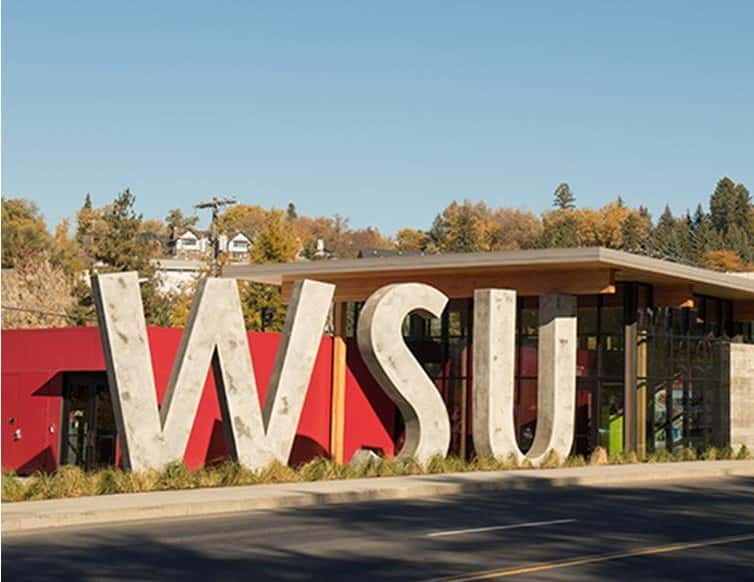
The U.S. Department of Energy has awarded Washington State University grant funding of $4.8 million for hydrogen fuel research. One of the grants will also build a heavy-duty hydrogen fueling station on the Pullman campus.
WSU Professors Jacob Leachman and Konstantin Matveev are leading a $3 million HYPER-Flow grant which aims to create the world’s first continuous liquid hydrogen flow loop with the ability to visualize and characterize the multiphase hydrogen flow inside pipes.
WSU will also receive $1.8 million as a partner in a $10 million HYPER-Fuel grant led by the Plug Power company which will improve hydrogen refueling stations for medium- and heavy-duty vehicles. As part of that project, the company will build a fueling station in Pullman, expected to be operational for research in the middle of 2026—and could ultimately fuel WSU and community vehicles.
“The funding recognizes WSU’s leadership in hydrogen-fuel development,” said Leachman, who heads up the university’s Hydrogen Properties for Energy Research (HYPER) Laboratory. “We’re going to need more people as a result of these grants, so we’re going to be recruiting, and we’re going to be doing a lot of great engineering.”
In total, the U.S. Department of Energy announced $62 million in grants for 20 hydrogen fuel projects across the U.S. These grants are focused on research, training and testing. The funding is on top of the $7 billion Hydrogen Hub investment announced in 2022 which is meant to help build the necessary infrastructure to have widespread hydrogen fuel use. WSU is also a partner in the Northwest Hydrogen Hub, which could receive as much as $1 billion in federal funding for infrastructure development.
Hydrogen-fueled vehicles are touted as one solution to help reduce greenhouse gases, and there are already some in use. For instance, Plug Power already runs a fleet of hydrogen fuel forklifts that help move 30% of groceries in the U.S. for companies like Amazon, Kroger and Walmart.
However, widespread adoption of the technology has been stymied by a chicken-and-egg problem: There need to be enough fueling stations for hydrogen vehicles to be on the road, but the stations need enough vehicles to use the fuel—especially since they lose some of the sitting fuel due to the need for venting. The longer the fuel sits, the more turns to gas and is lost.
The HYPER-Fuel project aims to solve part of that problem by developing a technology that will allow for the reliquification of hydrogen fuel that turns into gas, so it can be maintained on site longer. Approximately $1.8 million of the grant will fund WSU research into developing the thermofluid models for the station’s operation and optimization.
The $3 million HYPER-Flow grant will help solve another tricky problem—currently there is no way for engineers to see and properly characterize the ultra-cold hydrogen fuel flowing through pipes, which is critical to testing and validating equipment components. Leachman and Matveev are leading this project to create a continuous liquid hydrogen flow loop that will allow the rapid and continuous testing of liquid hydrogen fueling components. The project also includes the Pacific Northwest National Lab and company partners Rheonik and RegO Products.
Leachman credited the support of state and university leaders in helping achieve these grants.
“Hydrogen has received nearly unanimous support from both political parties in the Pacific Northwest, and the WSU leadership has been really steadfast behind us in setting up this lab, which no other university has,” he said. “That’s what has really enabled us to form these partnerships that take years to create to be successful landing these major awards.”

